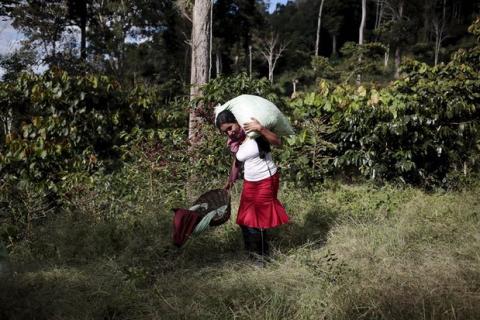- The Chicago Letter and Its Aftermath – Scott Jaschik (Inside Higher Ed)
- Climate Change Predicted to Halve Coffee-Growing Area That Supports 120m People – Michael Slezak (Guardian)
- National Labor Relations Board Decides Charter Schools are Private Corporations, Not Public Schools – Emma Brown (Washington Post)
- Gender Segregation at Work: “Separate but Equal” or “Inefficient and Unfair” – Will McGrew (Washington Center for Equitable Growth)
- Teaching Trump to College Students – Jason Blakely (The Atlantic)
The Chicago Letter and Its Aftermath
By Scott Jaschik
August 29, 2016
Inside Higher Ed
John Ellison, dean of students at the University of Chicago, wrote a letter that has been read and scrutinized not only by Chicago students but by professors and pundits nationwide.
To those who regularly campaign against what they see as political correctness, and to plenty of others, the letter was the message they have been waiting for -- and that they think students need.
But to many others, the letter distorted programs on which many students rely, ignored the hostility many students feel on campus, and belittled the sincerity of faculty members who work to make higher education more inclusive.
Climate Change Predicted to Halve Coffee-Growing Area That Supports 120m People
By Michael Slezak
August 29, 2016
Guardian
Climate change is going to halve the area suitable for coffee production and impact the livelihoods of more than 120 million of the world’s poorest people who rely on the coffee economy, according to a new report by the Climate Institute, commissioned by Fairtrade Australia & New Zealand.
Extreme temperatures and unusual high-altitude rains have also sparked costly waves of pests and disease through coffee farms. In 2012, coffee leaf rust affected half of the coffee across Central America – some producers in Guatemala lost up to 85% of their crop.
National Labor Relations Board Decides Charter Schools are Private Corporations, Not Public Schools
By Emma Brown
August 30, 2016
Washington Post
The National Labor Relations Board decided in two separate cases last week that — as far as federal labor law is concerned — charter schools are not public schools but private corporations.
Charter school advocates have long argued that charters are public schools because they are tuition-free, open-enrollment institutions funded primarily with tax dollars. But union leaders and other critics describe charters as private entities that supplant public schools, which are run by elected officials, with nonprofit and for-profit corporations that are run by unelected boards that are unaccountable to voters.
The decisions mean that the schools’ employees must organize under the National Labor Relations Act, which applies to private-sector employees, rather than under state laws that apply to public-sector employees.
Gender Segregation at Work: “Separate but Equal” or “Inefficient and Unfair”
By Will McGrew
August 18, 2016
Washington Center for Equitable Growth
Assuming different roles for men and women at work and at home, male-dominated occupations remain mostly structured to meet the needs of a stereotypical male who is expected to have a spouse at home, a work-schedule issue that not only fails to accommodate women but also often actively pushes women out. The idea that women are freely “opting out” of workforce opportunities because they have different career aspirations than men has been thoroughly debunked. Instead, women usually leave their jobs because of negative experiences in the workforce, especially in male-dominated fields. In particular, jobs in these fields often demand a culture of long hours, which does not accommodate flexibility for caregiving, forces many mothers to quit, and likewise discourages fathers from helping out at home.
Teaching Trump to College Students
By Jason Blakely
August 31, 2016
The Atlantic
For the last 50 years, most political-science professors have relied on what has become a standard framework. It comes from Louis Hartz, a Harvard professor, whose famous thesis states that both the left and the right in the United States are dominated by what he dubbed the “liberal tradition” (“liberal” in the older sense of the word and not as the opposite of “conservative”). The liberal tradition is an ideology that affirms individual rights, due process of law, and a separation of powers in government. Hartz believed this tradition was so ingrained in American culture that there had never really been a need for a distinct liberal party or movement but simply what he called “the American Way of Life.”
The rise of Trump has shattered the Hartzian illusion that American politics is one big, happy, liberal tradition with occasional family spats. Professors of American politics will need to venture much further afield if they are to properly map the actual contours of American ideology.


Spread the word